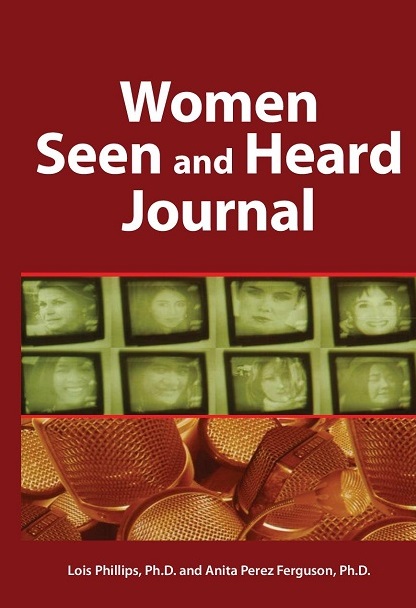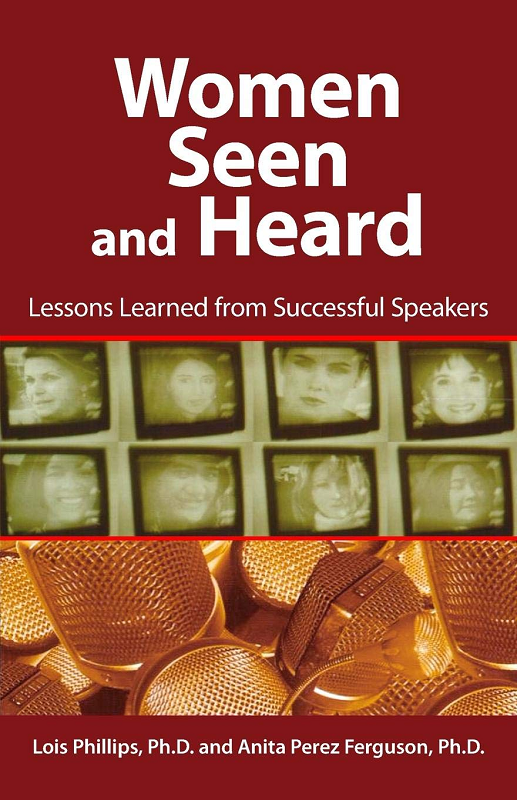The History of Women as Speakers: When Women Spoke up They Changed History
From Aristotle and Plato on, the earliest philosophers and the church believed that women’s primary purpose in life was to reproduce and be attractive to men. Women existed to support men’s success, primarily because they were thought to be intellectually inferior. For all these reasons and more, women were depicted as people who lacked the capacity to be leaders.
Sexist stereotypes remain pervasive to the current day but throughout history women pushed against them to express their ideas, feelings, and opinions, even when it cost them their lives. Curious readers can dig deep to learn that policy, procedural, and legislative changes that improved the status of women happened because of women’s courage to speak up in public spaces.
Dr. Phillips completes this monograph with a review of what outspoken contemporary women have accomplished, even when they have been dismissed. It’s eerie how the same criticisms remain pervasive about women’s tendency to gossip, lie, use guile to manipulate the truth, and lose focus. Even today, there are examples of sexist press coverage including testimonies given by speakers Anita Hill, Kristine Blasey Ford, and Hillary Clinton. Women leaders in every sector have much to learn from outstanding women speakers – whose accomplishments are rarely covered in conventional textbooks. The brilliant women who spoke up and argued for women’s rights (and the right to be heard and believed through public testimony) have changed the course of history. Women’s advancement is due to women who risked their lives and livelihoods to speak truth to power.
The print and kindle versions of the book are available on Amazon.com. The e-book version contains hyperlinks to speeches by those 20th and 21st century women who were outspoken leaders across sector, discipline, and field.
Women Seen and Heard Speaker’s Journal NOW AVAILABLE!
The Women Seen and Heard Journal: Workbook and Templates provides women readers with the opportunity to explore the basis for any reticence they might have as public speakers. The Journal will develop self-awareness with regard to her own values, interests, ideas and opinions. There are more opportunities for women to advance into leadership roles, but for women to become leaders, they need to develop mastery of presentation skills in a range of situations, to include speaking up in business meetings to presenting a formal presentation at a conference, pitching to investors or donors, or running for office and speaking to the press. The SPEAKER’S JOURNAL provides templates for 9 types of presentations women might deliver, from the Informational, Inspirational, Persuasive, and Humorous presentations to the “Small Wins” Briefing, and even a Cheat Sheet for delivering a perfect Wedding Toast! Given how busy women are today, these templates will save time and force focus. Chapters focus on a woman’s role models, assertiveness, authenticity, gaining credibility at the podium, and preparing for a career as a professional speaker. The authors are professional speakers with media experience and share what they know from their own experience and coaching others.
Click here to buy from Amazon.
Click here to buy from Barnes & Noble.
Women Seen and Heard: Lessons Learned From Successful Speakers
Lois Phillips doctoral research confirmed what her communication consulting practice suggested: women speakers in leadership roles – more so than men–need to gain credibility as ‘the voice of authority’ before they can convince anybody about anything. Stereotypes about women’s intellectual capacity to lead organizations in top leadership roles can create skepticism in the audience’s mind about whether she is tough minded enough for the job, and distract from truly hearing and remembering the content or her message. The good news is that motivated speakers can learn to improve quickly from coaching, video-feedback, and reading WOMEN SEEN AND HEARD: LESSONS LEARNED FROM SUCCESSFUL SPEAKERS. Interviews with executive and political leaders who are dynamic presenters provided the basis for techniques to overcome any audience skepticism that might exist. Tips, techniques, and helpful worksheets help women prepare their presentations, whether advocating for a social program, informing colleagues, pitching to investors, or presenting controversial material to a formal audience and the press. Lois has spoken about her research to students, alumni, and faculty at Harvard’s JFK School, Babson College MBA Alumni, and UCSB


